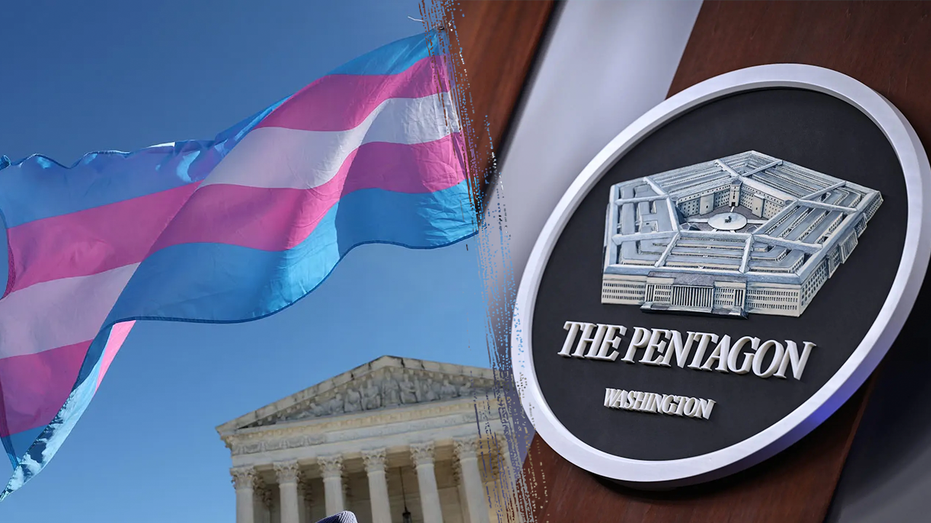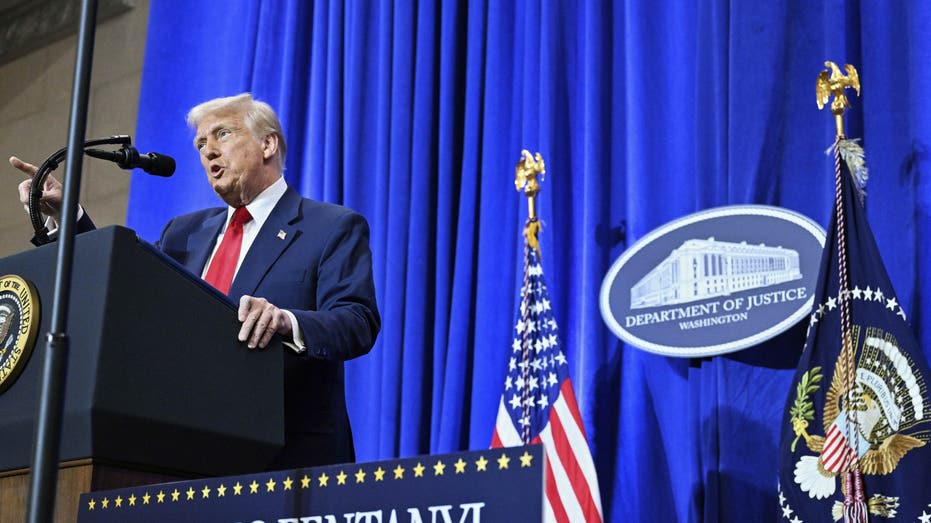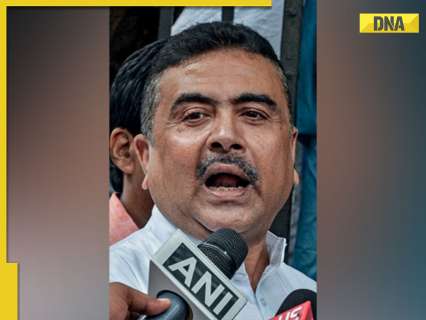Can an aspirin a day keep cancer at bay?

For decades, aspirin has been known as a go-to painkiller. New research reveals how it may also help fight cancer. While previous research hinted at a link between aspirin use and improved cancer survival, a study published in Nature last week explains why. However, experts caution that aspirin is not a cure – and it carries risks like increased potential for internal bleeding. So, how might aspirin keep cancer from spreading? And what does this mean for future treatments? What have studies found about aspirin use and cancer? Recent studies have revealed how aspirin, a widely used painkiller, may help prevent the spread of cancer, although it is unclear whether it would work the same for all types of the disease. Researchers have been exploring this link for decades. The first clinical study, published in 1988, showed that regular aspirin use significantly lowered the risk of colorectal cancer, though the underlying reason remained unclear. Now, a new study from the University of Cambridge offers more insight. It found the mechanism by which aspirin may help prevent cancer from spreading, a process known as metastasis. Advertisement Metastasis is responsible for the majority of cancer-related deaths, as cancer cells break away from the original tumour and try to take root elsewhere across the body. As these drifting cancer cells go rogue, aspirin may enhance the body’s natural ability to fight back, keeping the cancer cells from taking hold of more organs. How can aspirin keep cancer from spreading? The key to aspirin’s effect on cancer lies in the body’s immune system, a complex network of cells and proteins that defends against infections, diseases and harmful germs. When cancer cells break away from a tumour, they enter the bloodstream, where the immune system – specifically types of white blood cells known as T-cells – normally hunts them down and destroys them. However, platelets – tiny cell fragments in the blood that help with clotting – can interfere with this process. Cancer takes advantage of platelets by triggering a response similar to an injury. When platelets detect the free-floating cancer cells, they rush to coat them, much like they would cover a wound to stop bleeding. This creates a protective shield, making it harder for the immune system to recognise and attack the cancer cells. Additionally, platelets release signals that suppress T-cells, preventing them from doing their job. Aspirin disrupts cancer’s attempts at trickery by reducing the production of a molecule that platelets use to suppress immune activity. With the platelets weakened, T-cells regain their ability to recognise and destroy cancer cells before they have a chance to form new tumours. Advertisement How could aspirin be used against cancer? The study suggests that aspirin could be used after treatments like surgery where tumours are removed. This is because some cancer cells may have already escaped from the tumour and begun to settle in other parts of the body, a process known as seeding, where tiny cancer cells embed themselves in new areas and may later grow into tumours. However, experts caution against immediately using aspirin as a cancer treatment without further research. The painkiller carries the potential for serious side effects such as internal bleeding because by weakening the platelets, it can weaken their ability to help blood clot. Aspirin blocks a molecule that prods platelets to clump together. This makes the blood thinner and increases the risk of uncontrolled bleeding. This is especially dangerous in the stomach, where aspirin can irritate the lining and cause ulcers, and in the brain, where it raises the risk of a hemorrhagic stroke if a tiny blood vessel bursts. Additionally, the study was carried out on mice, not humans, so its effects on cancer spread still need to be confirmed before it can be recommended for treatment. “Our research provides a molecular explanation for observations from clinical studies, but proper clinical validation is still needed,” Rahul Roychoudhuri, a professor in Cambridge’s Department of Pathology who was part of the Nature study, told Al Jazeera. Several clinical trials, such as the ADD-ASPIRIN trial in the United Kingdom, Ireland and India, are under way to determine which patients are most likely to benefit most from taking aspirin and whether it works for specific types of cancers. Advertisement Roychoudhuri added that he does not anticipate an “immediate fast-tracked translation” of aspirin to cancer treatment. Has aspirin been used against diseases in the past? Some patients with a high genetic risk for cancer, such as those with Lynch syndrome (a condition that increases the likelihood of developing certain cancers), are already recommended aspirin as a preventive measure in countries such as Australia and the UK. Since the 1980s, aspirin has also been prescribed to help prevent heart attacks and strokes in people at high risk of heart disease, by reducing the ability of platelets to form harmful clots that can block blood flow to the heart or brain. This clot-preventing effect helps lower the risk of heart attacks in those with a history of cardiovascular disease. Does this mean we are close to a breakthrough in curing cancer? Not necessarily. While aspirin may help slow or prevent the spread of cancer, it does not eliminate tumours entirely. However, scientists are working to identify biomarkers – measurable signs in the blood – and platelet activity to help detect individuals at risk for cancer early on. “This would allow for timely treatment with aspirin while minimising unnecessary exposure for those who do not require it,” said Paola Patrignani, a professor of pharmacology at Gabriele d‘Annunzio University in Italy. Experts say the findings could also contribute to the development of drugs that inhibit cancer spread. “Our discoveries open possibilities for developing more targeted therapies that could potentially provide the benefits without aspirin’s side effects,” Roychoudhuri said. Advertisement Patrignani, who is involved in research funded by Cancer Research UK to investigate whether other anti-platelet drugs, like clopidogrel, might offer similar benefits, says these studies will require another three to five years to be completed.
Ranya Rao Gold Smuggling Case: Kannada actor slapped, denied food, forced to sign documents in DRI custody

Accused Ranya Rao claims innocence in a letter to DRI, alleging physical assault, forced signatures, and wrongful implication.
Caught on camera: Karnataka BJP leader, cop engage in power slap contest, here’s what happened next

In a shocking incident, a Karnataka BJP leader and a police official reportedly got into a power slap contest in Chitradurga. The video of the incident was circulated online, prompting reactions from netizens.
‘Thumka lagao warna…’: Lalu Prasad Yadav’s son Tej Pratap Yadav orders cop to dance at Holi event, draws flak

In a bizarre incident, Bihar’s former Chief Minister Lalu Prasad Yadav’s son and MLA Tej Pratap Yadav ordered a cop to dance at a Holi event in Bihar, the video of which is being circulated online.
Delhi’s AQI in ‘moderate’ category for Jan-March period in three years, drops to…

Delhi on Saturday recorded an average Air Quality Index (AQI) of 85, which is the lowest in the last three years for the period from January 1 to March 15.
Transgender sailors, Marines offered benefits to voluntarily leave service or face being kicked out

The Department of the Navy is offering transgender sailors and Marines the option to voluntarily separate from the service by March 28. Otherwise, they risk being booted from the service — cutting the benefits they’re eligible for in half, according to a Thursday memo released by the Department of the Navy. The policy aligns with an executive order that President Donald Trump signed in January to bar transgender individuals from serving in the military, and Secretary of Defense Pete Hegseth’s subsequent orders in February instructing each of the service branches to start separating transgender troops within 30 days. Acting Secretary of the Navy Terence Emmert said in the memo that the Department of the Navy recognizes male and female as the only two sexes, and that “an individual’s sex is immutable, unchanging during a person’s life.” As a result, Emmert said that those who have a history or “exhibit symptoms consistent with” gender dysphoria may no longer serve in the military and may voluntarily elect to depart the service by March 28. After that date, the Navy will remove sailors and Marines involuntarily from their respective services. FEDERAL JUDGE RIPS DOJ LAWYERS, DEMANDS WRITTEN RETRACTION FROM HEGSETH OVER TRANSGENDER MILITARY POLICY POST “A history of cross-sex hormone therapy or sex reassignment or genital reconstruction surgery as treatment for gender dysphoria or in pursuit of a sex transition is disqualifying for applicants for military service, and incompatible with military service for military personnel,” the memo said. Even so, the Navy said it will not go through medical records or health assessments to identify transgender service members, unless explicitly requested to do so. Transgender service members who don’t take the Navy up on its offer to voluntarily separate are not eligible for as many benefits post-separation. Those who voluntarily depart from the service will receive double the separation pay as those who are involuntarily removed, according to the Navy’s memo. For example, the Pentagon said on Feb. 28 that an E-5, a petty officer first class in the Navy, with 10 years of experience, would collect a total of $101,628 in voluntary separation pay, but only $50,814 if that service member were to opt for involuntary separation pay. Those with less than six years of service, or more than 20 years of service, are not eligible for voluntary separation pay. “The Chief of Naval Operations (CNO) and Commandant of the Marine Corps (CMC) will maximize the use of all available command authorities to ensure impacted personnel are afforded dignity and respect,” the Navy’s memo said. Some exceptions to the rule may apply. The memo said that the Secretary of the Navy may issue waivers for those seeking to remain or join the service on a “case-by-case basis,” if there is proof that keeping or recruiting such individuals “directly supports warfighting capabilities.” DOJ ISSUES COMPLAINT ABOUT FEDERAL JUDGE’S ‘MISCONDUCT’ WHILE PRESIDING OVER MILITARY TRANS BAN COURT CASE The Navy referred Fox News Digital to its press release on the order when reached for comment, and did not provide an answer as to how many sailors this order would likely impact. The Navy released its guidance the same day that a federal judge heard arguments for a lawsuit that LGBTQ legal rights advocacy group GLAD Law and the National Center for Lesbian Rights filed in February against the Trump administration, seeking a preliminary injunction pausing the ban while litigation is pending. U.S. District Court Judge Ana Reyes is expected to issue a final decision on the preliminary injunction by March 25. GLAD Law did not immediately respond to a request for comment from Fox News Digital. The Human Rights Campaign Foundation and Lambda Legal also filed a separate lawsuit in February challenging the Trump administration’s order on behalf of six trans service members and asked a federal judge to block the order amid the legal proceedings. “A dishonorable action from a dishonorable administration,” the Human Rights Campaign Foundation and Lambda Legal said in a Feb. 27 statement. “This attack on those who have dedicated themselves to serving our country is not only morally reprehensible but fundamentally un-American. Forcing out thousands of transgender servicemembers, who have met every qualification to serve, does not enhance military excellence or make our country safer.” The Human Rights Campaign did not immediately respond to a request for comment from Fox News Digital. Navy leaders have previously defended LGBTQ service members. For example, former Chief of Naval Operations Adm. Mike Gilday defended a nonbinary Navy officer assigned to the aircraft carrier Gerald R. Ford featured in a video the Navy Judge Advocate General Corps shared on Instagram about participating in an LGBTQ spoken-word night during deployment. PENTAGON SAYS TRANSGENDER TROOPS ARE DISQUALIFIED FROM SERVICE WITHOUT EXCEPTION The video attracted scrutiny from Republican lawmakers, who called into question the Navy’s war-fighting priorities. For example, then-Sen. Marco Rubio shared the video on X in April 2023, and said: “While China prepares for war this is what they have our @USNavy focused on.” But Gilday, who retired in August 2023, told Republican lawmakers on the Senate Armed Services Committee in April 2023 that he was proud of the officer and that people from all different backgrounds serve in the Navy. As a result, Gilday said it is incumbent upon Navy leaders to “build a cohesive warfighting team that is going to follow the law, and the law requires that we be able to conduct prompt, sustained operations at sea.” “That level of trust that a commanding officer develops across that unit has to be grounded on dignity and respect,” Gilday said in April 2023. “And so, if that officer can lawfully join the United States Navy, is willing to serve and willing to take the same oath that you and I took to put their life on the line, then I’m proud to serve beside them.”
14 youths arrested for causing havoc on Holika Dahan night in Ahmedabad

On Holika Dahan night in Ahmedabad, a group of youths caused chaos, leading to the arrest of 14 individuals by the police.
Texas schools have leaned on uncertified teachers to fill vacancies. Lawmakers want to put a stop to it.

Underprepared teachers have been tied to student learning losses. But amid a teacher shortage crisis, school leaders fear the restrictions will lead to fewer instructors in their classrooms.
Here’s what happened during President Donald Trump’s eighth week in office

President Donald Trump kicked off the week driving a red Tesla on the White House South Lawn and closed out the week addressing the Department of Justice. In his remarks Friday, Trump railed against former President Joe Biden’s Department of Justice and accused the agency of turning into the “department of injustice.” “Our predecessors turned this Department of Justice into the department of injustice,” Trump said Friday at the Department of Justice. “But I stand before you today to declare that those days are over, and they are never going to come back.” Trump has regularly condemned the Justice Department and the FBI since his first administration after multiple investigations and lawsuits filed against him. For example, the FBI investigated Trump and his 2016 campaign for alleged collusion with Russia. The probe determined there was no evidence the Trump campaign coordinated with Russia to influence the outcome of the election. TRUMP PRAISED FOR GETTING NATO ALLIES TO BOLSTER DEFENSE SPENDING: ‘REALLY STAGGERING’ Under the Biden administration, Trump faced more legal scrutiny when former Attorney General Merrick Garland tapped former special counsel Jack Smith in 2020 to conduct investigations into alleged efforts by Trump to overturn the 2020 election results and Trump’s alleged efforts to preserve classified materials at Mar-a-Lago after his first term as president. “They tried to turn America into a corrupt communist and Third World country, but, in the end, the thugs failed, and the truth won,” Trump said. “Freedom won. Justice won. Democracy won. And, above all, the American people won.” A spokesperson for Biden did not immediately respond to a request for comment from Fox News Digital. Here are some other key moments from the week: Trump also met with NATO Secretary General Mark Rutte Thursday, and the two discussed efforts to bolster NATO’s defense spending and the U.S. potentially acquiring Greenland. Trump has long advocated for NATO allies to boost defense spending to between 2% and 5% of gross domestic product. He also has called for European nations to pick up more responsibility for defending their continent. “You’re starting to hear the British prime minister and others all committing to much higher defense spending,” Rutte told reporters Thursday at the White House. “We’re not there. We need to do more, but I really want to work together with you … to make sure that we will have a NATO which is really reinvigorated under your leadership. And we are getting there. “When you look at Trump 47, what happened the last couple of weeks is really staggering.” He made the remarks after an $841 billion proposal European Commission President Ursula von der Leyen pitched March 4 for European Union nations to up their defense spending. Additionally, British Prime Minister Keir Starmer vowed in February to boost his country’s defense spending to 2.5% of its gross domestic value. That is up from the 2.3% the U.K. currently spends and amounts to a nearly $17 billion increase. ‘HYSTERIA’: WHITE HOUSE SHUTS DOWN CONCERNS ABOUT USAID DOCUMENT PURGE Trump also expressed optimism during the meeting about the likelihood of the U.S. acquiring Greenland, even though the Danish territory has said it’s not interested in Trump’s offer. “I think it’ll happen,” Trump told reporters Thursday. “And I’m just thinking. I didn’t give it much thought before, but I’m sitting with a man that could be very instrumental. You know, Mark, we need that for international security, not just security, international.” In response, Rutte said he didn’t want to “drag NATO” into the discussions but said Arctic countries must work with the U.S. to preserve security in the region as Russian and Chinese vessels increase their activity there. The White House shut down concerns Tuesday and Wednesday that the U.S. Agency for International Development (USAID) ordered employees to destroy classified documents amid efforts by the Trump administration to close the agency. USAID acting Executive Secretary Erica Carr emailed employees, instructing them to begin shredding and burning documents, according to a motion that government labor unions filed in a federal court Tuesday. But the documents remain available on computer systems, and Carr’s directive coincides with the U.S. Customs and Border Protection’s impending move into the USAID building, according to White House spokeswoman Anna Kelly. “This was sent to roughly three dozen employees,” Kelly said in an X post regarding Carr’s order Tuesday night. “The documents involved were old, mostly courtesy content (content from other agencies), and the originals still exist on classified computer systems. More fake news hysteria!” All involved in purging the documents had a secret security clearance or higher and were not among the USAID employees on administrative leave, an administration official told Fox News Digital Wednesday. Those involved were familiar with the content they were handling and were specifically appointed by the agency to review and eliminate materials, the official said. Thousands of employees at USAID were either fired or placed on administrative leave in February, following recommendations from the Department of Government Efficiency (DOGE) to cut wasteful spending. Trump bought a red Tesla Tuesday and showed off the vehicle on the White House’s South Lawn with SpaceX and Tesla CEO Elon Musk, who heads DOGE. The event coincided with Tesla’s stock dipping earlier in the week, but the share price rose after the White House event. Democrats were quick to pass judgment on the move, and the Democratic Congressional Campaign Committee labeled the Trump administration the “most corrupt administration in American history.”
West Bengal: Internet suspended in parts of Birbhum after Holi clash, BJP lashes out at state government

Leader of Opposition in West Bengal Assembly, Suvendu Adhikari, on Saturday lashed out at the State government over the suspension of internet services in parts of Birbhum district, terming it as “evidence of deterioration” in the law and order situation.
